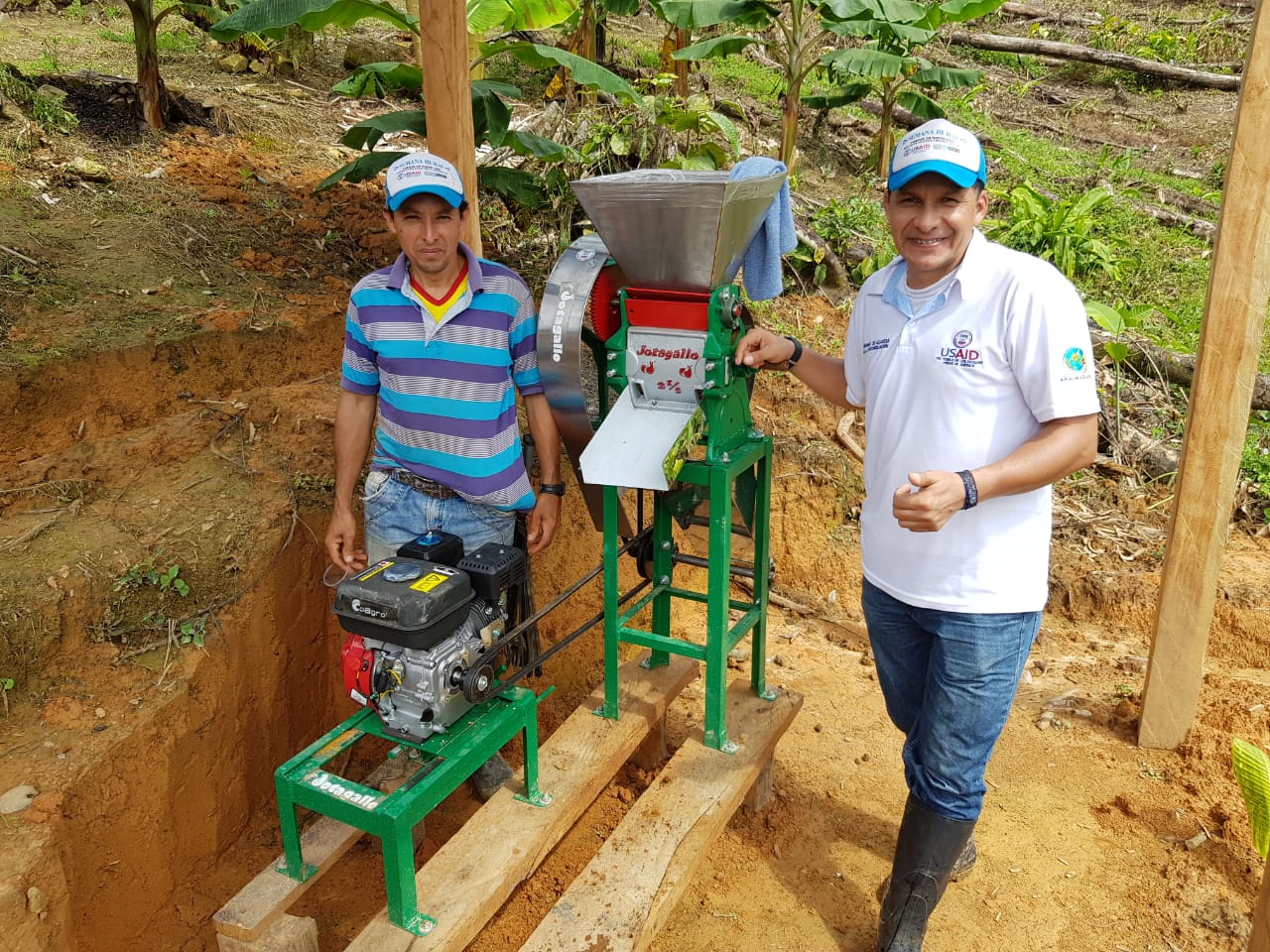
In Colombia, rural farmers play an important role helping to repair social structures broken by decades of armed conflict. In many rural areas, land was at the center of conflict. Different armed groups fought for control, and narco-traffickers used the land to grow coca. Vast patches of territory were considered off-limits as land mines and armed actors restricted civilian access. Up until a few years ago, looking out over the Vista Hermosa countryside in central Colombia’s Meta Department, one would see coca fields as far as the eye could see. Communities living with the constant threat of violence were afraid to trust in one another or in state institutions.
The USAID-funded Program of Alliances for Reconciliation (PAR) addresses these issues by offering viable alternatives for rural communities. Through PAR, we support farmers as they access legal and sustainable income-generating opportunities through livelihood projects. As more producers move away from cultivating illicit crops such as coca and start to produce products that can be marketed at the local, national, and international levels, communities restore a sense of pride in themselves, and stigmas start to break down as security levels rise.
Program of Alliances for Reconciliation Helps Farmers Switch to Licit Crops
In Vista Hermosa, PAR’s support to 34 families from the farmers’ association Asoagroguapaya has resulted in a successful coffee-growing initiative. The farmers, all victims of the armed conflict, used to grow coca, but have shifted to legal options.
“This has been one of the best years for development. We have gained a lot of confidence, and not only improved our cultivation methods for better quality and efficiency, we have also developed a lot on a personal level thanks to the psychosocial support we receive through the project.”
Jairo Molina, farmer & group leader, villa hermosa
In addition to empowering communities through income-generating initiatives, PAR uses the psychosocial methodology DecidoSer to restore trust, dialogue, and respect. Establishing trust among Colombia’s rural farmers is having a profound impact on the reconciliation process as producers gain confidence and see that they can become successful businesspeople within legal sectors.
“I was reluctant to take part in the psychosocial workshops at first, because I thought only crazy people needed psychologists. But now I see how important it is, that this is something we all need to help us work through what we have been through as individuals and also as a community.”
– Jairo Molina, farmer & group leader, villa hermosa
Taking their livelihood project a step further, the Asoagroguapaya producers opened a coffee shop – the first in Vista Hermosa – where they sell products from other local producers such as cakes, jams, dairy, and cacao in addition to their coffee. The café has become a reference point for locals and visitors to the area, as people come to enjoy fine quality coffee in a space that promotes discourse and community interaction.
Learn more about our Program of Alliances for Reconciliation here
Learn more about our work in Colombia here








